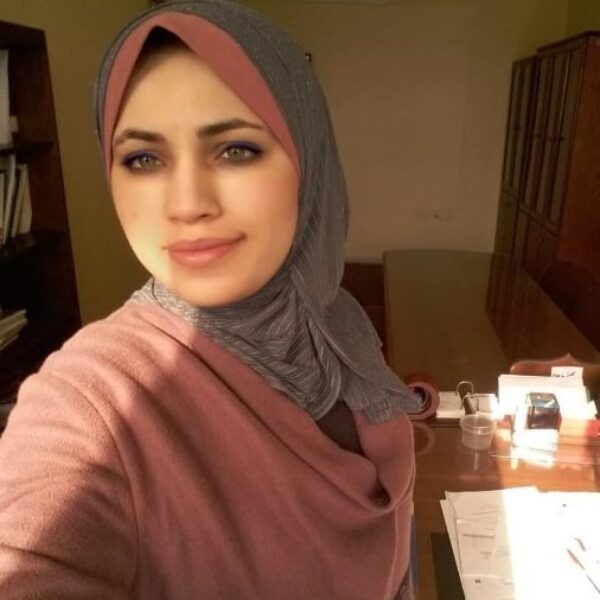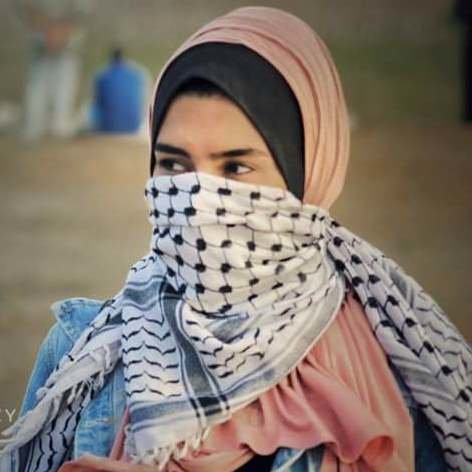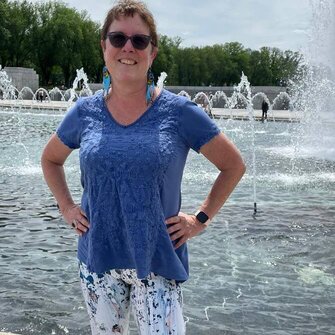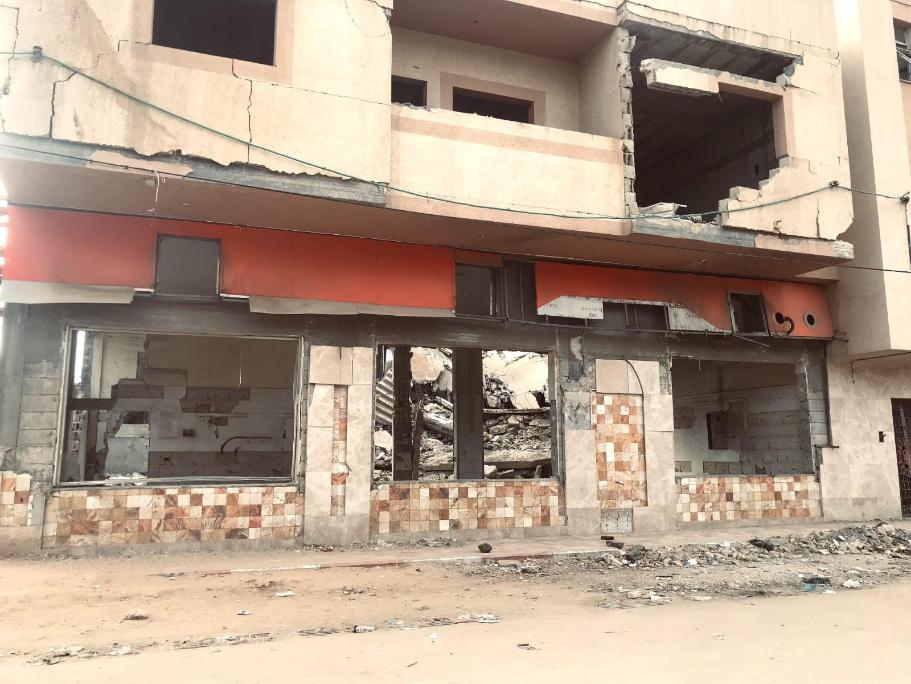
I don’t know how and when my love for my homeland began, but it is deeply rooted. If someone were to ask me the definition of unconditional love,I would answer with an example: Palestinians' love for Palestine.
The concept of “homeland” for me has always been connected to the image of a mother and who shows mercy, care and kindness. I do not know if humans are patriotic by nature, but I believe almost everyone feels a need to belong. Fadi Al-Naji, another member of We Are Not Numbers, writes: “For Palestinians, the notion of homeland occupies our minds. It is something we inherit from our fathers and grandfathers and it will be passed to our kids and grandkids. It cannot be erased, because it’s embedded like words inscribed on a rock.”
I always feel a sort of shudder when I listen to a patriotic speech, poem or play. A smile finds its way to my face when I hear a song about homeland as I walk on the street or ride in a taxi. A feeling of pride flowed into every cell of my heart when I sang the national anthem every morning at school. I have been raised to love my land and this love is part of me now.
Is there a stronger love than the love you feel for a land you cannot see or visit? As a refugee, I have not been allowed to visit my original city (Yibna, which was “cleansed” during the creation of Israel) but I am proud of and love it. In the video below, my grandmother, Um Ali, is shown participating in the Great Return March on March 30. She holds a sign saying "Yibna" and says, "I'm from Yibna and our land can't be forgotten or left." Then she begins singing along with the music in the background:"We will return to Jerusalem, even if it means millions of martyrs."
Another of my friends from We Are Not Numbers, Khuloud Suliman, writes, “My hometown is Al-Jiyya, which means ‘delightful place full of flowers and trees.’ It is very near here, just 20 km from Gaza City. When I get close to the northern border of Gaza, I can see the village. Yet I cannot go there. I am not allowed to touch the sand and smell the fragrance of citrus fruit, figs and grapes. I cannot walk in the valley that separated my village into two halves, and that filled with rain in winter. Can you imagine how I feel when this image comes to my mind? I feel hatred toward the Israeli occupation and the settlers who live in the land from which my ancestors were expelled. Every day, mum tells me about it and my yearning for the village begins to invade my heart. I do not have even one picture of my village, so I Googled its name, hoping to find some images. But, unfortunately, I found only pictures of the Israeli settlement that replaced it. When I see other countries where the residents live in peace and comfort, I think of the situation here and ask myself, “Will I even be alive when we can return to our cities? Will I ever be able to enjoy a homeland like everyone else?”
A burning desire to serve
To love someone is to feel sympathy and empathy. My love for my homeland feeds my desire to help my people. During every war, I have wanted to document and expose the wrongs. I’ve always wanted to be a journalist. I know this might not fit my talents the best, but I’ve always felt an eagerness to speak up about the misery of my people. We are dying here and the words that describe death and suffering are familiar even to children. When I ask my three young brothers what they want for presents, they often ask for long guns and ammunition. I know many who read this will accuse us of teaching terrorism. I know even fake guns are not good toys for children, but it is what one must expect from a 10-year-old child who already has lived through three wars; who has grown accustomed to the low hum of surveillance drones; and whose news is dominated by electricity shortages, unemployment and sickness due to pollution and unhealthy water.
My desire to be a journalist competes with the need to heal; I dream also of training to be a doctor or nurse. As anyone who is following the news of the Great Return March will discover, we are prey in the Zionist jungle; there are no rules that protect peaceful protesters—even journalists and medics are targets.
Resistant spirits
I consider myself a neutral Palestinian; I do not side with either Hamas or Fatah. But I boldly say I cannot resist loving the resistance. When I was a bit younger, I used to say I would marry a man from the Al-Qassam Bridges [the military resistance] and we would die together. I was a teenager and full of naïve enthusiasm, but even today I respect all Palestinian factions who resist wisely.
A month ago, I discussed with some We Are Not Numbers friends a short story about a Palestinian wife mourning her murdered husband. One of my friends said to me, “Hanin! Stop talking about freedom fighters like they are angels! They are humans like us.” But it is not easy to live in Gaza and love it, so it must be very challenging indeed to die for it.
If I am an extremist in my love for my land, there are many others who feel the opposite and I can’t blame them. One girl who I just recently met said very bluntly: “I do not want to return to my original city. I do not need it! I need nothing from this land except for it not to kill me. When humans are materially poor, they are spiritually and emotionally poor too, so expect nothing from me if my land provides nothing.”
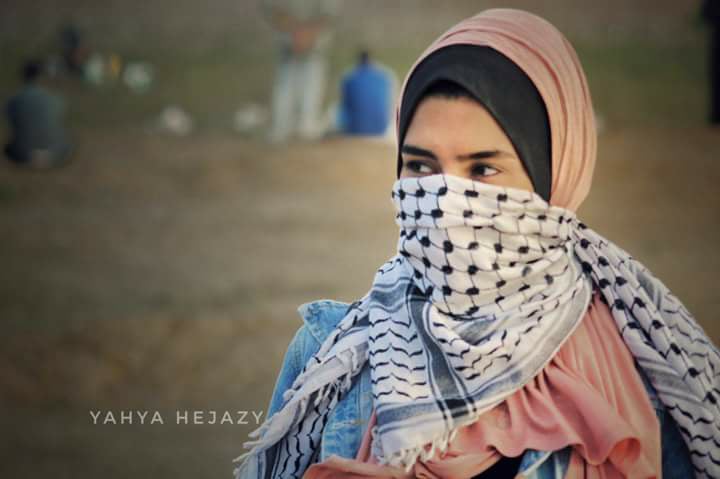
While listening to her, many questions jumped into my mind. Is being detached from your home really a life? Is it living to be oppressed by your own president, Arab relatives and even some Palestinian parties? Is it worth living when you are a humiliated refugee? Is it worth living when you are called a terrorist whatever you do and wherever you go? Is life meaningful when you have no dignity or rights? I know what the answer is for me. While some Palestinians are fed up with living in "cursed' Gaza, others like me are growing stronger and our love and faith are deepening. I am so proud of the Gazan youths who choose to go to the borders, protest, speak up, raise the Palestinian flag, burn the Zionist one, be injured, help others who are injured and return every day or every Friday. I appreciate their independent spirit, determined soul and, above all, their humanity.
The march offered the first opportunities for one of my fellow writers, Ali Abusheikh, to go that close to the border, since we normally are told it is too dangerous. He wrote this after his visit:
“My participation in the Great Return March made me realize how important home is for all Palestinians—whether it be a home they cannot live freely in or cannot visit or return to. The Israeli occupation has made our lives meaningless, yet we still have hope and find full meaning in life. We never cease to protest. I feel blessed to be among the brave We Are Not Numbers writers who went to the fence. I rediscovered my bravery and deep connection to Palestine. The first thing I saw at the march was an ambulance rushing to the area near the fence to rescue wounded protesters. The image of an injured young man bleeding on a stretcher while the ambulance sirens blared will haunt me forever. The protesters have built a virtual town near Gaza’s eastern border with Israel. They have even built camps with tents similar to those built for refugees when they were forced to flee their homes in 1948.
“However, these new camps were built with hope and determination, not with fear and frustration. I love how the protesters hang the names of their original villages and cities on the sides of the tents. And how they proudly wear the traditional Palestinian costume. One of the scenes still etched in my memory is a family sitting between the golden stalks of grain while eating nuts and chit-chatting. I love that the protesters are resisting the Israeli occupation peacefully by trying to create a normal, positive atmosphere in the same area where they have been met with Israeli tear gas and bullets. The Great Return March assures me that Palestinians will never break or back down. We are ready to sacrifice our lives for freedom and a decent life.”
For me and many others, Palestine is not just the name of a mythical country or a stretch of land; it’s part of ourselves—our identity, religion, culture, language, and past, present and future. It’s worthy of living and dying for.

